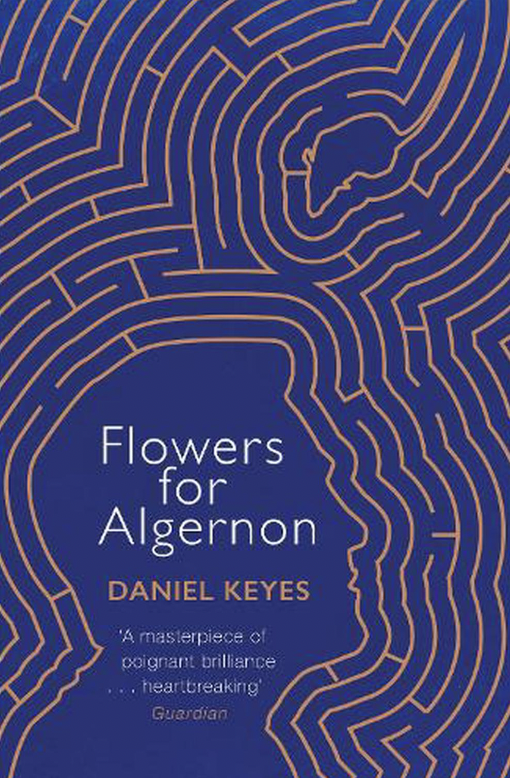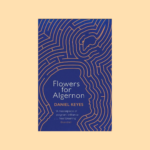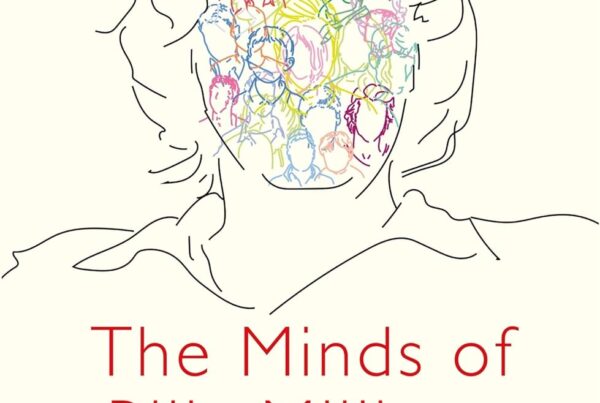
“I don’t know what’s worse: to not know what you are and be happy, or to become what you’ve always wanted to be, and feel alone.”
~Daniel Keyes
What would it feel like to find out, years into adulthood, that you have been the butt of the joke your entire life? That those who you viewed as friends are mocking you behind your back and in front of you? Flowers for Algernon, a 1959 book by Daniel Keyes, tries to answer that question. It is about much more than that, of course, as we find out by following Charlie, the book’s protagonist. Flowers for Algernon accompanies Charlie as he deals with his rapid development from mental disability to superintelligence. What is most intriguing about his experience, however, is that it almost becomes a revenge story against the people in his life, the society that mistreated him, and himself.
Charlie’s story begins with and revolves around his journey towards gaining an exceptional intellect, through an operation vetted on the titular mouse that he comes to associate with, Algernon. What comes after is a blur of Charlie getting back at all those who have wronged him, including his past, bumbling, embarrassing self. This is where the book shines, in the new Charlie’s contempt for those who he once loved, albeit foolishly, and in his reconciliation of past experiences and difficult truths. This coming to terms takes him from the bakery at which he works all the way to his childhood home, while he navigates the dichotomy of an incredibly hastened intellect and a stunted-at-best emotional development.
The novel is entirely composed of progress reports that Charlie writes for the researchers of the study he takes part in, with the transformation of his intellect being illustrated through his accounts morphing from messily handwritten “progris riports” to eloquent and typewritten “Progress Reports”. At its core, Flowers for Algernon illustrates the double-edged sword of scientific development. Transformation is often a tumultuous road that needn’t be all positive, evidenced by Charlie’s massive shift in intelligence not shielding him from the pain of his world reshaping through a change in his perception alone.
Flowers For Algernon, however, is certainly of its time. While most of the features that make it such can be classified as choices, they are ‘choices’ that are very apparent to a 21st century reader. Chief among these is the portrayal of intelligence. While the story itself does take a small amount of time to debate the nuance of what intelligence is, this important discussion is undercut by the novel falling short of making Charlie feel truly intellectually exceptional at any point in the novel. Although Flowers for Algernon has plenty of words for Charlie’s annoyance at how stupid professors, peers, and loved ones feel compared to him, it falls short of making that frustration feel justified by showing Charlie be smart in a way that is more than reading a lot. It also highlights the view that IQ intelligence is markedly distinct from emotional intelligence—despite his rapid advancement in IQ and memory retention, Charlie’s emotional intelligence and maturity is seriously tested as it trails behind.
What emerges from all of this is a ‘book club book’ in the best way possible. Flowers For Algernon is the type of book that reminds you how fun and uncomplicated the act of reading can be. It is a book that, decades after publication, has plenty of room for discussion packed inside, and one that has way more to tell you about yourself than feels fair for how easy it is to read.
Flowers For Algernon is published by Harcourt, Brace & World and can be bought at most bookstores or online for around 15€.

“I don’t know what’s worse: to not know what you are and be happy, or to become what you’ve always wanted to be, and feel alone.”
~Daniel Keyes
What would it feel like to find out, years into adulthood, that you have been the butt of the joke your entire life? That those who you viewed as friends are mocking you behind your back and in front of you? Flowers for Algernon, a 1959 book by Daniel Keyes, tries to answer that question. It is about much more than that, of course, as we find out by following Charlie, the book’s protagonist. Flowers for Algernon accompanies Charlie as he deals with his rapid development from mental disability to superintelligence. What is most intriguing about his experience, however, is that it almost becomes a revenge story against the people in his life, the society that mistreated him, and himself.
Charlie’s story begins with and revolves around his journey towards gaining an exceptional intellect, through an operation vetted on the titular mouse that he comes to associate with, Algernon. What comes after is a blur of Charlie getting back at all those who have wronged him, including his past, bumbling, embarrassing self. This is where the book shines, in the new Charlie’s contempt for those who he once loved, albeit foolishly, and in his reconciliation of past experiences and difficult truths. This coming to terms takes him from the bakery at which he works all the way to his childhood home, while he navigates the dichotomy of an incredibly hastened intellect and a stunted-at-best emotional development.
The novel is entirely composed of progress reports that Charlie writes for the researchers of the study he takes part in, with the transformation of his intellect being illustrated through his accounts morphing from messily handwritten “progris riports” to eloquent and typewritten “Progress Reports”. At its core, Flowers for Algernon illustrates the double-edged sword of scientific development. Transformation is often a tumultuous road that needn’t be all positive, evidenced by Charlie’s massive shift in intelligence not shielding him from the pain of his world reshaping through a change in his perception alone.
Flowers For Algernon, however, is certainly of its time. While most of the features that make it such can be classified as choices, they are ‘choices’ that are very apparent to a 21st century reader. Chief among these is the portrayal of intelligence. While the story itself does take a small amount of time to debate the nuance of what intelligence is, this important discussion is undercut by the novel falling short of making Charlie feel truly intellectually exceptional at any point in the novel. Although Flowers for Algernon has plenty of words for Charlie’s annoyance at how stupid professors, peers, and loved ones feel compared to him, it falls short of making that frustration feel justified by showing Charlie be smart in a way that is more than reading a lot. It also highlights the view that IQ intelligence is markedly distinct from emotional intelligence—despite his rapid advancement in IQ and memory retention, Charlie’s emotional intelligence and maturity is seriously tested as it trails behind.
What emerges from all of this is a ‘book club book’ in the best way possible. Flowers For Algernon is the type of book that reminds you how fun and uncomplicated the act of reading can be. It is a book that, decades after publication, has plenty of room for discussion packed inside, and one that has way more to tell you about yourself than feels fair for how easy it is to read.
Flowers For Algernon is published by Harcourt, Brace & World and can be bought at most bookstores or online for around 15€.




